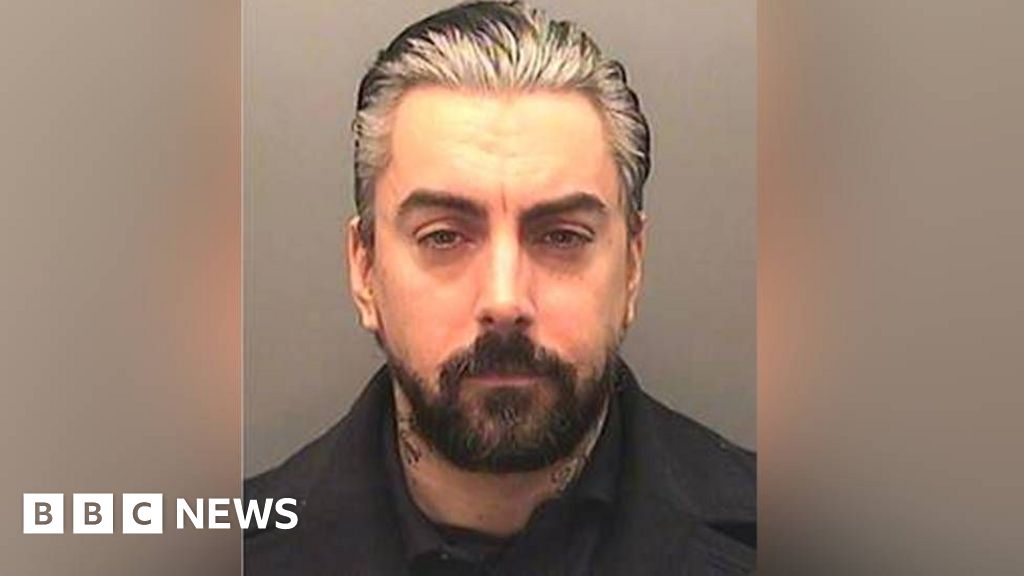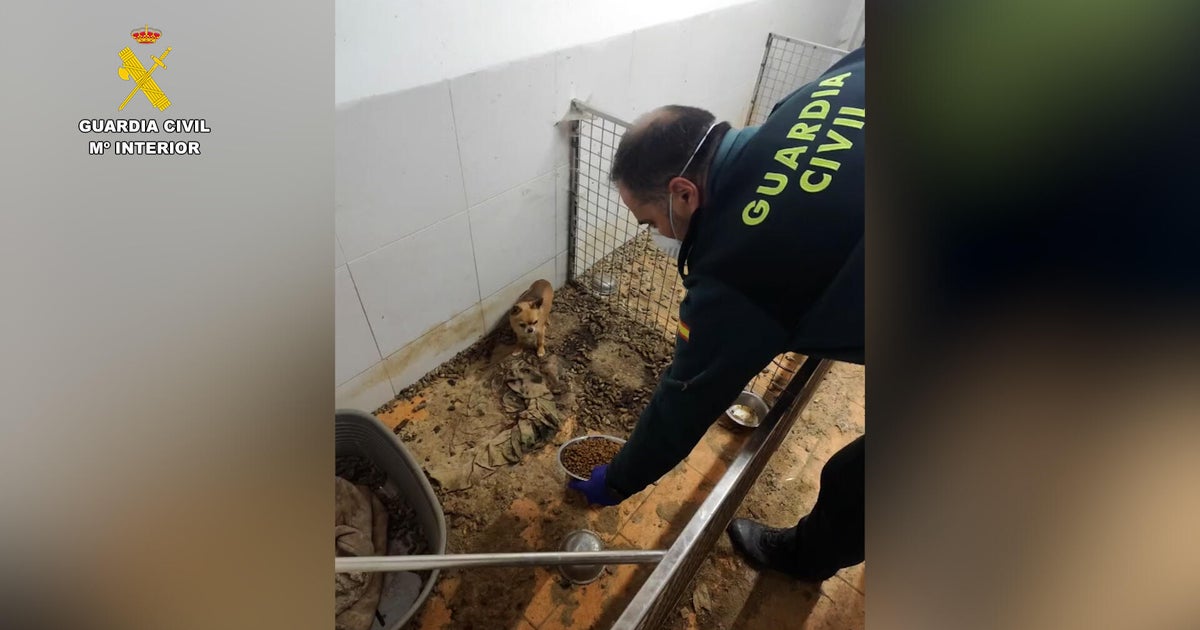Young mom on life with incurable breast cancer
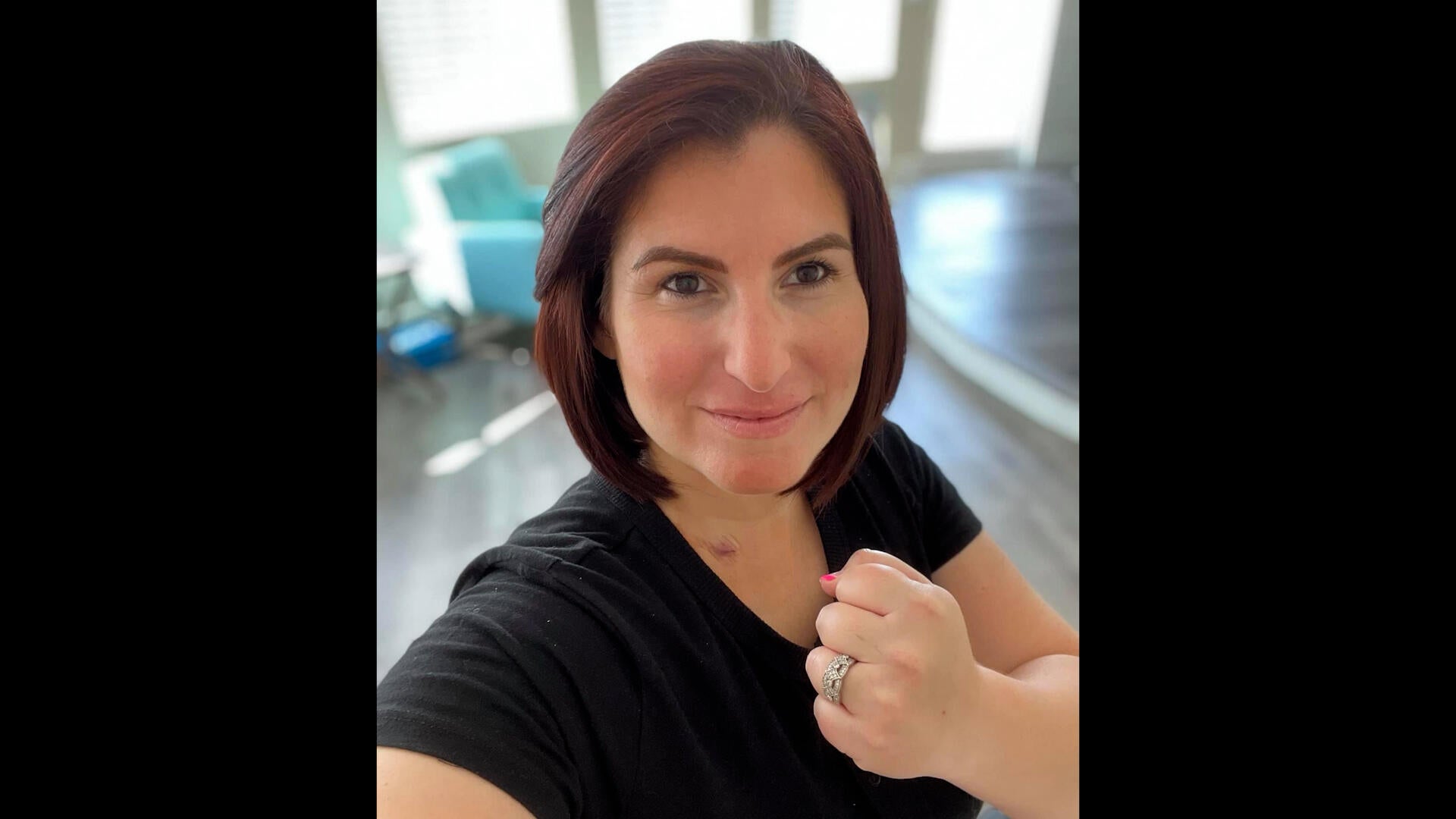
Elissa Kalver was 34 when she found a lump in her breast. She had no family history of cancer and had just welcomed her first child. She assumed the lump was a cyst. But when she went to get it checked out, doctors found another lump in her armpit. Biopsies found that both lumps were malignant.
More tests found the situation was worse than she could have imagined: a PET scan found cancer in her lower spine and liver. She was diagnosed with HER2-positive metastatic breast cancer. Diseases that have spread as far as Kalver's are considered incurable, according to the Cleveland Clinic.
"I was told I wasn't going to die tomorrow, but I was told that there was an 80% chance that I would die within five years," Kalver said. "The first oncologist I had, to uplift me, was like, 'Well, I have some patients who are six, seven years out.' Hearing that, as a 34-year-old, that your hope is to live till 40, was crazy."
The new mom had to quickly adjust to her new reality.
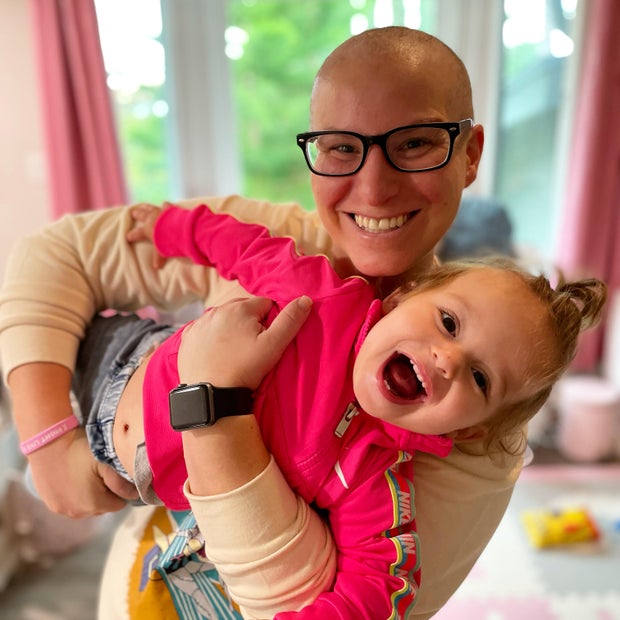 Elissa Kalver and her daughter shortly after her diagnosis.
Elissa Kalver
Elissa Kalver and her daughter shortly after her diagnosis.
Elissa Kalver
"In my head, I was like, I know other people who have gone through this, I'll cut off my breasts, whatever we have to do to get rid of it," Kalver, now 38, said. "And it was after the PET scan, I understood that I didn't understand. It really shifted to trying to understand that I'm essentially a cancer patient for the rest of my life."
What is HER2-positive metastatic breast cancer?
HER2-positive metastatic breast cancer is an aggressive and fast-growing form of breast cancer that is considered incurable but treatable. Patients with HER2-positive breast cancer have high levels of human epidermal growth factor receptor 2, or HER2, a protein that manages how cells grow and divide, according to the Cleveland Clinic.
The prognosis and treatment of HER2-positive breast cancer vary depending on when it is diagnosed and the spread of the disease at the time. Patients who are diagnosed before the cancer spreads have a 97% five-year survival rate. For patients like Kalver, the five-year survival rate drops to 39%, according to the Cleveland Clinic.
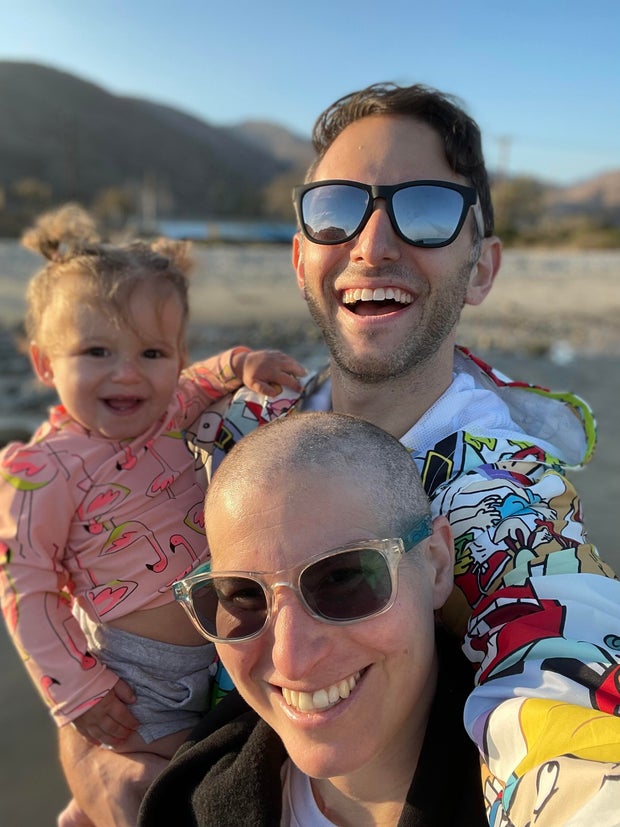 Elissa Kalver, her daughter and her husband shortly after her diagnosis.
Elissa Kalver
Elissa Kalver, her daughter and her husband shortly after her diagnosis.
Elissa Kalver
Medical advances are continually improving the prognosis, according to Dr. Shari Goldfarb, an oncologist at Memorial Sloan Kettering Cancer Center who leads the hospital's Young Women with Breast Cancer center.
"Over the past 10 to 15 years, we've developed so many new medications that target the HER2 receptor, and that significantly improves the outcome of women diagnosed with HER2-positive disease. It used to be one of the worst and most aggressive subtypes of cancer," Goldfarb said. "Many women are living years and even decades now with metastatic HER2-positive breast cancer."
Treating HER2-positive metastatic breast cancer
Treating the disease requires constant surveillance, Goldfarb said. A patient like Kalver gets scans every three to four months. If their cancer is stable or improving, they will continue their current treatment. If the disease is progressing, the treatment would need to be changed, Goldfarb said. Doctors also need to consider a patient's quality of life and treatment side effects.
"Generally, the principle is to give people the best quality of life possible for as long as possible," Goldfarb said.
Kalver sought treatment at the UCLA Health Jonsson Comprehensive Cancer Center. Her first treatment was an aggressive course of chemotherapy. Over the past four years, she has participated in multiple clinical trials and undergone several different forms of treatment, according to her oncologist, Dr. Marla Lipsyc-Sharf.
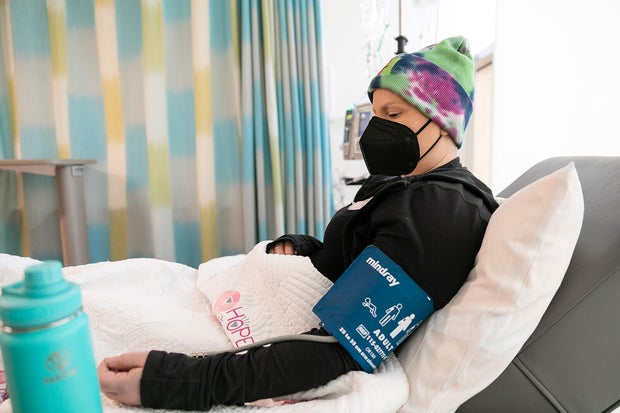 Elissa Kalver undergoes chemotherapy.
Billye Brenneisen
Elissa Kalver undergoes chemotherapy.
Billye Brenneisen
About a year after her diagnosis, doctors found the cancer had spread to Kalver's brain.
"I always thought tumors in your brain, like, 'That's it,'" Kalver said.
But a targeted chemotherapy that crossed the blood-brain barrier to attack the tumors. The masses were reduced by about 80%, Kalver said, and they have not grown in the past three years.
The treatments have taken their toll, Kalver said. One chemotherapy made her so nauseous that "it was hard to be awake," Kalver said. Another caused her to lose her hair, which Kalver worried would alarm her then 1-year-old daughter. Sharf said other treatments caused Kalver to experience symptoms including bone pain, muscle pain and a bleeding rash. Each time the side effects have become too intense, Sharf works to recalibrate Kalver's treatment.
Currently, Kalver is receiving chemotherapy infusions every three weeks and takes an oral medication twice a day. The treatment caused her to become "a bit anemic," which recently required a blood transfusion, but otherwise, things are going well, she said.
"After being on chemo for four years, I've really learned that we have to prioritize living, not just surviving," Kalver said. "I feel really grateful to still be on chemo treatments that work."
 Elissa Kalver in her "We Got This" home office.
Ethan Pines
Elissa Kalver in her "We Got This" home office.
Ethan Pines
"Living like I'm alive"
Kalver may spend the rest of her life on chemotherapy or other treatments. She, and many other HER2-positive metastatic breast cancer patients, may never enter a remission or see no evidence of disease on their scans. She did ring the bell after finishing her first course of chemotherapy, taking part in a ritual many cancer patients use to mark the end of their treatment.
"I thought about it a lot going into it, because I was like, 'I'm not done with treatment, but I'm done with this treatment. And this treatment was pretty hard, and I deserve to ring that bell,'" Kalver recalled. "I rang it so hard that I actually broke the bell."
Since then, Kalver has developed other ways to mark important milestones.
Every year, she celebrates what she calls a "cancerversary," honoring the day she was diagnosed. For her first "cancerversary," Kalver launched "We Got This," the first nonprofit gift registry for cancer patients. Since then, she has written a book, become a professional speaker and worked to educate other patients about the reality of participating in clinical trials. In July, Kalver will celebrate her fifth "cancerversary." She's still mulling over how to celebrate the "big milestone."
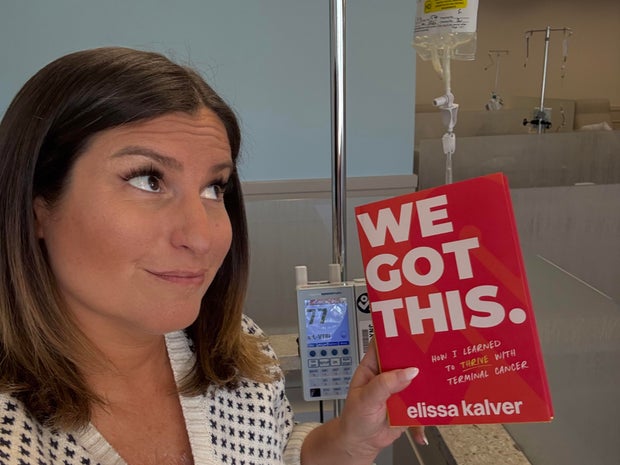 Elissa Kalver poses with her book during a chemotherapy infusion.
Elissa Kalver
Elissa Kalver poses with her book during a chemotherapy infusion.
Elissa Kalver
When she's not busy with work and advocacy, she spends time with her daughter, now 4, and her husband. Living life to the fullest is a priority, she said.
"I want to live as long as I can with the best quality of life that I can, making the biggest impact that I can," Kalver said. "I do all the things, and I really make an effort at living like I'm alive."
Kerry Breen is a news editor at CBSNews.com. A graduate of New York University's Arthur L. Carter School of Journalism, she previously worked at NBC News' TODAY Digital. She covers current events, breaking news and issues including substance use.




